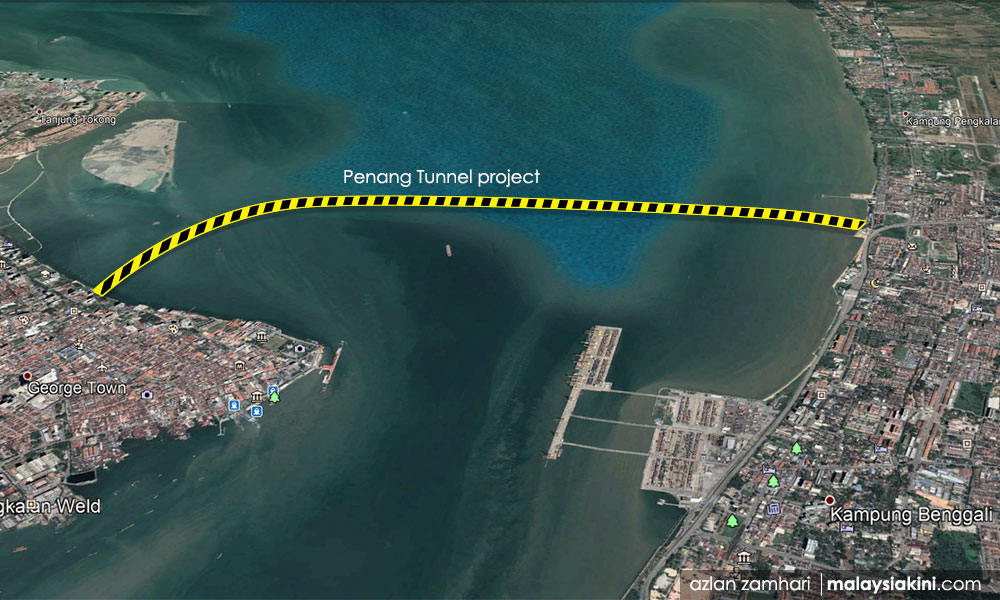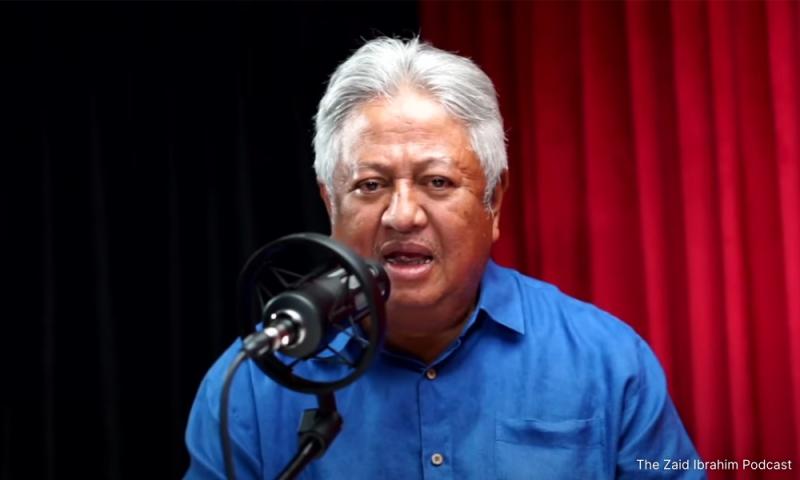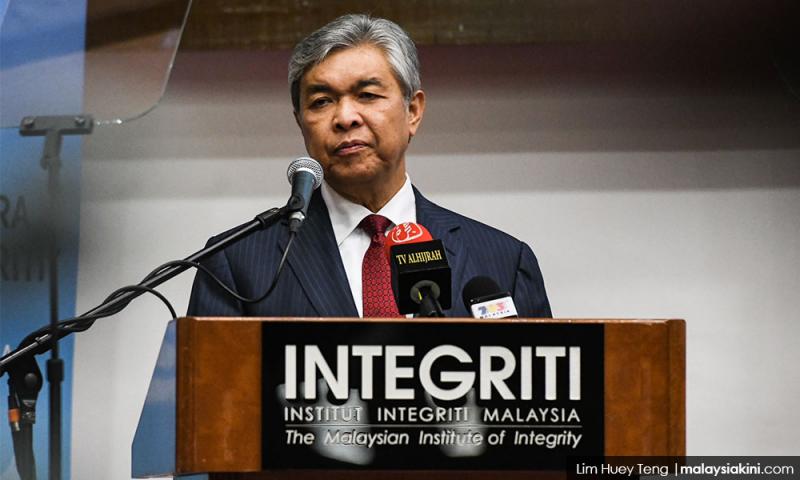COMMENT | Proposing an undersea tunnel project connecting Bagan Datuk, Perak, to Sumatra might be enticing from apolitical perspective. However, getting the project implemented would be a herculean task.
Beyond this, it is not clear how people in Bagan Datuk will benefit from this proposed project.
A few days back while addressing a crowd in his parliamentary constituency of Bagan Datuk, Perak, Deputy Prime Minister Ahmad Zahid Hamidi mentioned the fact that there might be an undersea tunnel connecting Bagan Datuk to Sumatra, Indonesia in the near future.
He said that such a tunnel would improve connectivity in the Straits of Malacca. While the government has accepted the concept of the undersea tunnel costing RM78 billion, private parties interested in the project should submit their proposals to the Perak government before the federal government can initiate bilateral talks with Indonesia.
While Zahid is confident that this undersea project is possible, however, he completely forgot or deliberately avoided mentioning why the Penang undersea tunnel project was not feasible.
The Penang undersea tunnel project will cost the Penang state government around RM6.3 billion whereas the tunnel connecting Bagan Datuk to Sumatra would cost RM78 billion - more than 10 times more.
What is strange is the fact that while the federal government has been totally opposed to the Penang undersea tunnel project that was awarded through an open tender to Zenith Consortium in 2013, I wonder how could Zahid justify an undersea tunnel connecting Bagan Datuk to Sumatra that will involve such a heavy cost.
I am sure that Zahid is aware that his colleague in the BN, MCA deputy president Wee Kia Soong has raised numerous objections to the Penang undersea tunnel project as something not feasible simply because the SPV (special purpose vehicle) that was given the tender allegedly does not have the financial capacity to undertake the project.
It is not that Wee is the only person who is opposed to the project. In fact, the entire federal government is opposed to the project.
To the federal government, if the Penang undersea tunnel project gets underway, it might have to bear the political cost of not doing anything for the Penang state since infrastructure projects come under the constitutional domain of the federal government.
If the federal government had met its constitutional requirements, then there would have been no necessity for the Penang state government to go on its own to embark on the tunnel project.

If the federal government is keen on building the third bridge, then such a thing could be discussed between the two parties.
Unintended consequences
The implementation of the Penang undersea tunnel project is not only subject to considerable opposition from BN parties, but also subject to investigation by the MACC.
The combination of opposition and investigation might derail the project once and for all although the Penang state government wants to continue with the project in the larger interests of people in Penang.
As I have stated on numerous occasions, the entire gamut of opposition to the Penang tunnel project is not related to the feasibility of the project or whether Zenith Consortium has the financial capacity to undertake the project but is rather political in nature.
Given the fact that the general election is around the corner, BN leaders are not keen that this project should take off. As far as they are concerned, particularly the Chinese-based political parties such as MCA and Gerakan, they want the project to be killed off once and for all so that the DAP-led government in Penang will get a bad name.
However, they don't realise that in real life, what is intended might produce unintended consequences.
Given the total opposition to the Penang tunnel project, it is not clear why Zahid would want to propose another undersea tunnel project to link his constituency of Bagan Datuk to Sumatra.
While I am not sure about the private parties involved in the project, however, given past experiences, it would not be surprising if Umno cronies are involved in the gestation of this idea of a tunnel connecting the two countries.
Even if the project gets the approval of the government agencies in Malaysia, it is not altogether clear if the project would get the consent of the provincial authorities in Sumatra or for that matter the federal authorities in Jakarta.
Indonesia is not Malaysia. Under the present government of Jokowi Widodo, there is strict enforcement of environmental laws. Also, provinces in Indonesia such as Aceh have considerable autonomy in terms of ensuring the interests of their own province.
Unlike Malaysia, there is no way that the Indonesian federal government could impose its authority on the provinces without the consent of the people involved. Remember, due to the strict application of laws against corruption and abuse of power, many federal and provincial Indonesian leaders have been arrested, charged and sent to prison.
Perhaps Zahid wanted to say something big to entice the voters in his constituency of Bagan Datuk bearing in mind that he won the seat in 2013 rather narrowly.
Maybe such an announcement might get additional votes but how such a tunnel project would be of immediate benefit to the people in Bagan Datuk remains unclear.
P RAMASAMY is Penang deputy chief minister and Perai state assemblyperson.
The views expressed here are those of the author/contributor and do not necessarily represent the views of Malaysiakini.





